Coventry Blitz: 'Father thrown into brook by bomb'
- Published
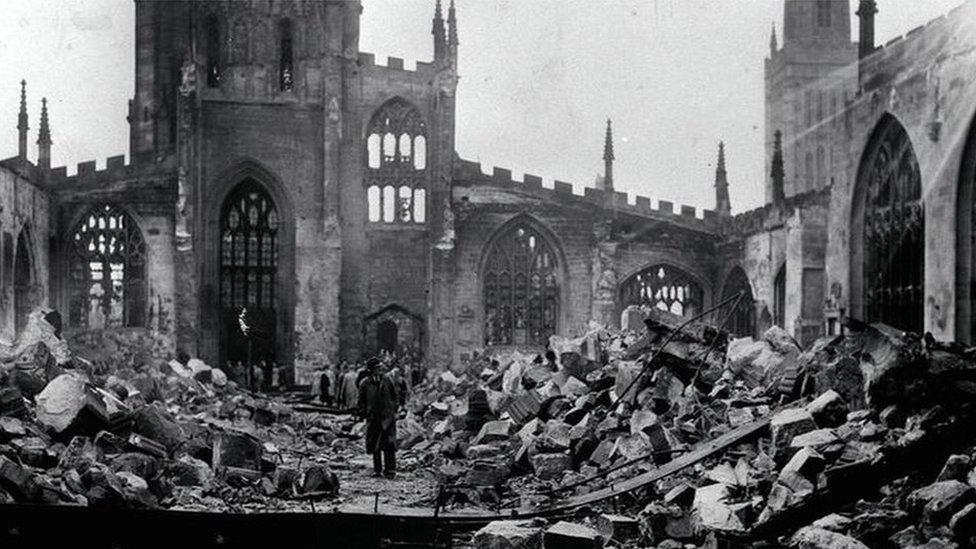
The most notable building to be destroyed was Coventry's medieval cathedral, St Michael's
A 91-year-old woman has recalled the moment her father escaped death when he mistook a parachute bomb for a man during the Coventry Blitz 80 years ago.
Mabel Hewitt's father ran towards the landmine as it descended and was thrown into a brook when it detonated.
On 14 November 1940, the Luftwaffe launched its most devastating bombing raid of World War Two so far, an 11-hour attack which killed 568 people.
An anniversary service at Coventry Cathedral will be streamed online.
The service lasting about an hour will include a documentary and will be available via the cathedral's Facebook and YouTube accounts.
Mrs Hewitt, who was 11 years old during the raid, went to a shelter, which was "always wet", dug into the ground about 6ft in the garden.
"When a landmine came down on a parachute, [my father] ran towards it thinking it was a man until someone shouted 'it's a bomb'," she said.
"Well, no sooner [had they] said that, than the bomb hit the ground and exploded and threw my father along with other wardens into a nearby brook."
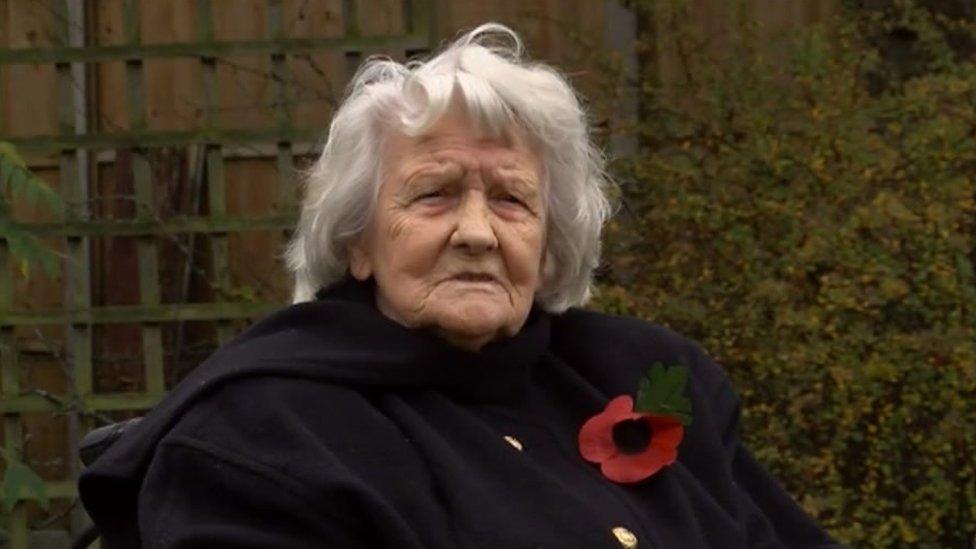
Mabel Hewitt said "about seven o'clock the German bombers came over to do their best"
More than 2,300 homes were destroyed and 41,500 homes and 71 factories damaged in the raid of 14/15 November.
"My mother and three sisters and myself [were] on bunk beds and the bombers came over. Now, they had a certain drone with their engines and they were different to ours, so we knew they were Germans," Mrs Hewitt said.
"They bombed us and it was the whistle and they landed with such a thud. Then there was an eerie silence before they exploded.
"Then the debris fell and the glass shattered and [there was] the occasional scream from somebody in anguish."
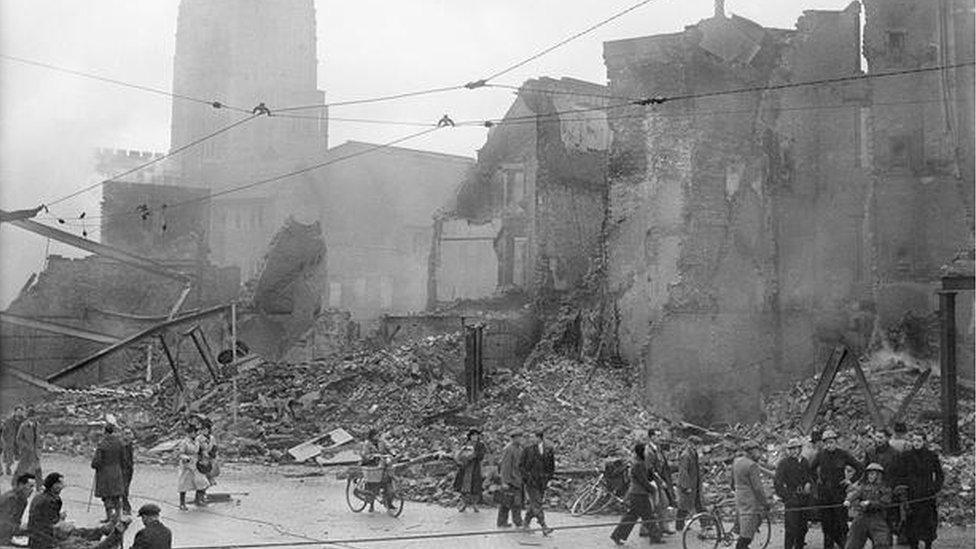
Nearly everyone knew somebody who had been killed or was missing
Incendiaries fell on a dog stadium nearby and her father and other wardens climbed gates to "release the dogs, otherwise they would have been incinerated", she said.
Mrs Hewitt added: "The dogs found their way into our shelter and I remember my mother saying 'take him on to your bed to keep him warm'. The poor dogs were shivering with cold and fear I suppose."
In the aftermath of the bombing, more than half of Coventry's population fled the city.
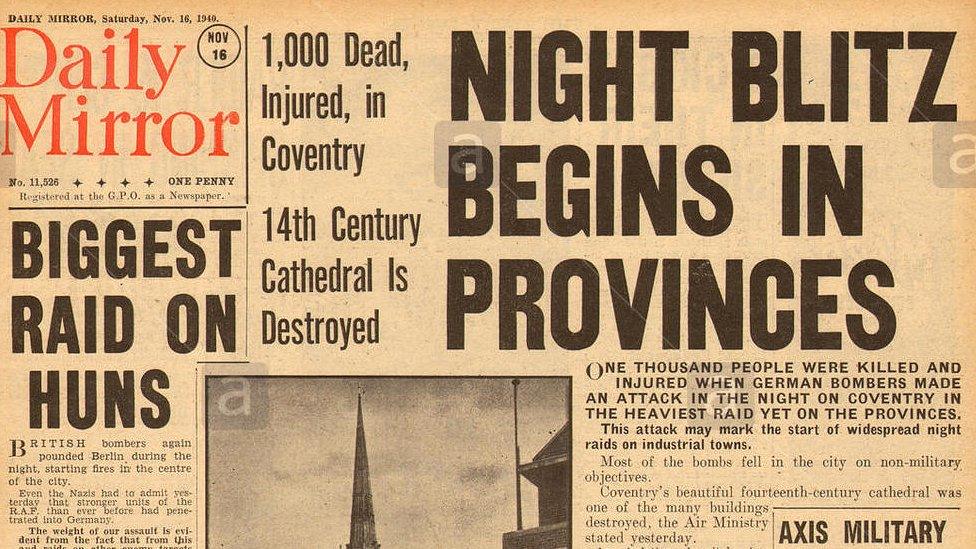
More than 2,300 homes were destroyed and 41,500 damaged
Towns and cities in England which suffered high casualty rates from World War Two air raids are now likely to be places with high levels of child deprivation, researchers have said.
Mrs Hewitt has set up Mabel's Enterprise, which will sell books and clothing with profits going towards funding activities such as computer coding clubs, dance classes and museum visits for underprivileged children.
"If it helps to encourage them to do well and to want better, I think that's quite a thing in life," she said.
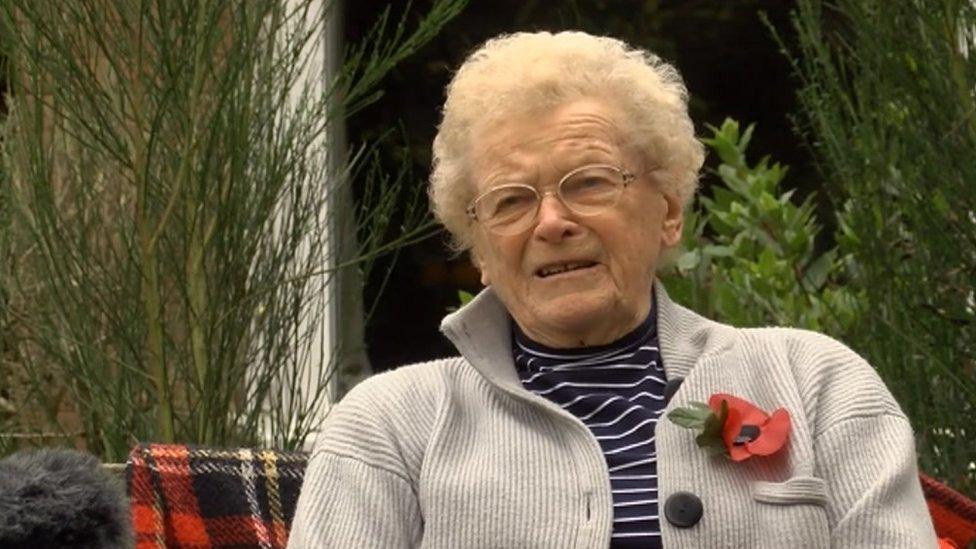
Christine Jones' father was a firefighter
Christine Jones, now 92, whose father was an auxiliary firefighter, remembers: "He just said 'you won't be going to school today Christine', which signified that there was no school left standing.
"There was no real source of water for the firemen to fight the fires with, so obviously any incendiary bombs were just burning away."
There will not be any public anniversary events due to coronavirus restrictions.
The service will be available on the cathedral's Facebook page from 19:00 GMT and released earlier in the day on YouTube.
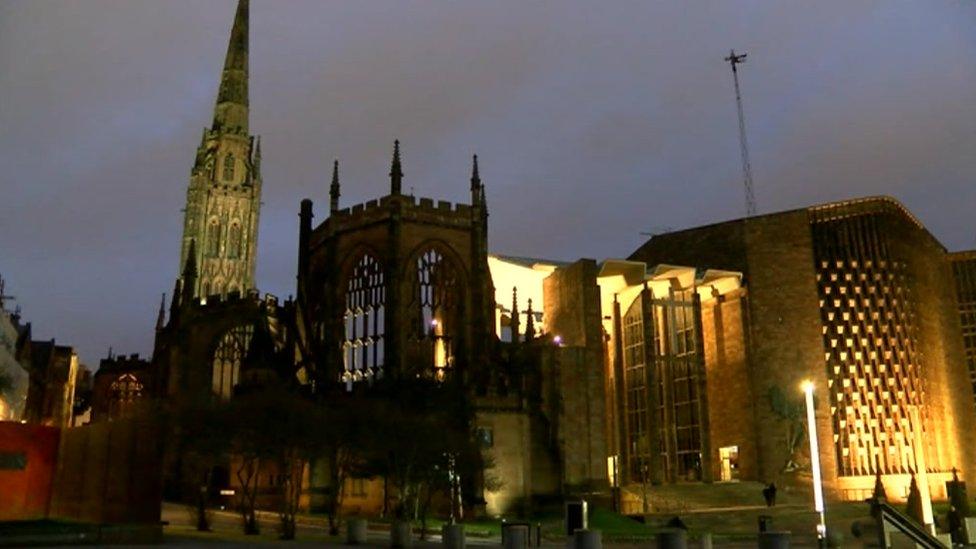
The service will be available on the cathedral's Facebook page from 19:00 GMT

Follow BBC West Midlands on Facebook, external, Twitter, external and Instagram, external. Send your story ideas to: newsonline.westmidlands@bbc.co.uk, external
- Published7 November 2020
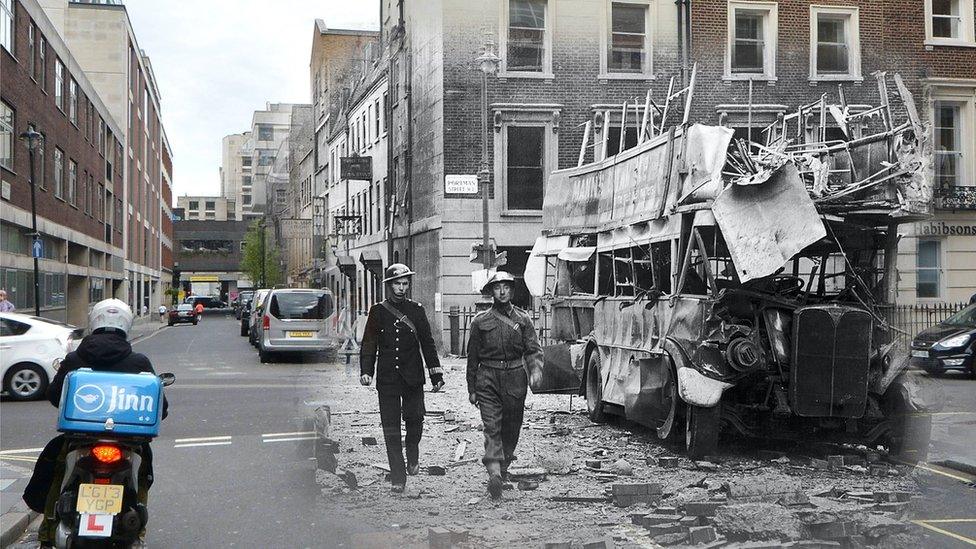
- Published13 November 2015
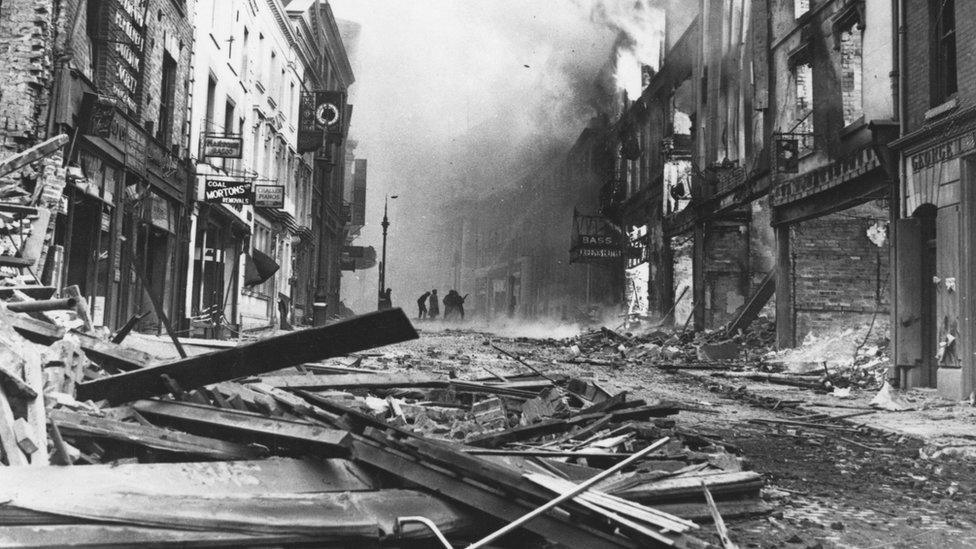
- Published14 November 2015
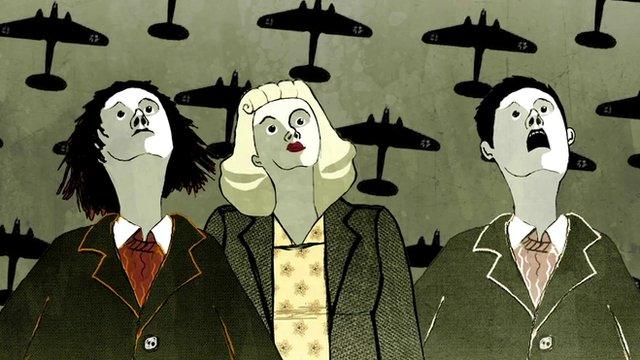
- Published12 November 2010